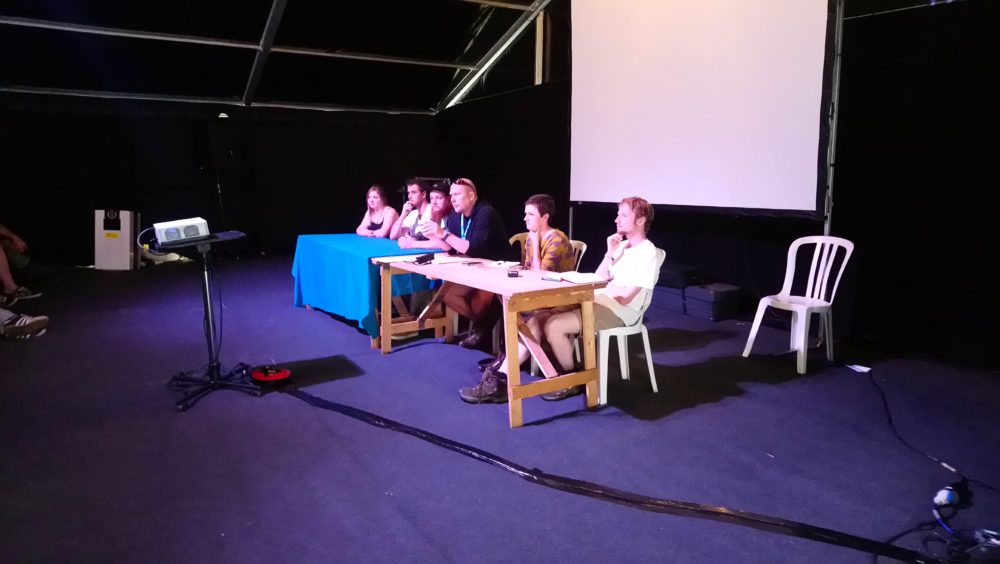I was recently asked to participate as a panellist in a debate titled “Next Generation: Should Nature Work For Us?” at the Birdfair conservation show in the Midlands. The Birdfair show is the World’s largest wildlife event, based at the beautiful Rutland Water Nature Reserve. Celebrities such as Bill Oddie, Chris Packham and Nick Baker were in attendance this year, sharing their passion for wildlife and nature with tens of thousands of others over the three day event.
The debate I was involved in was chaired by Dr Rob Lambert, a Professor in Environmental History at the University of Nottingham. The other panellists included Megan Rowland, a deer stalker based near Inverness, Peter Cooper, an ecologist based in Devon, and Cain Scrimgeour and Heather-Louise Devey, founders of the rewilding company Wild Intrigue. We were debating in front of an audience of between 50-60 people, with a range of ages and professions present.
The debate began with Rob introducing each of us and giving a bit of background as to who we were and what we did. We each then presented a position statement on the topic “Should nature work for us?” and got into the debate. As a summary, my position statement was that no, nature should not work for us, but at the same time I didn’t feel as though we had the luxury to work exclusively for nature. We, as a species, are faced with so many crises of unbelievable complexity that to focus on one and only one may come at the expense of all other challenges we face. Therefore, in my opinion, I said that there should be a balance, and that we should work with nature to the benefit of all.
Before the event, I was aware that as a commercial Forester I may have been quite unpopular from the start. The legacy and reputation of mid-1970’s afforestation, with seemingly little apparent regard for or awareness of ecological systems, has taken far longer to restore than I believe it should have. Modern sustainable forestry can and does improve ecological systems in a plethora of ways, promoting species diversity, resilience and abundance. The reputation of ‘cowboy’ forestry made me a little worried before a conservation event like Birdfair, but I needn’t have been so concerned. The audience and other panellists seemed very open minded and understanding of the benefits of forestry, and it seems as though the ghosts of the past are finally being laid to rest.
There were many issues discussed, but there were a few highlights for me. One was quite early on, and essentially questioned the ability of the young generation of conservationists to truly understand the concept of conservation, considering the fact that most of us have grown up in a far more developed world than our parents have. This is an interesting question, as I believe every generation has heard the same old line of “back in my day…” In my opinion, conservation isn’t solely defined by what used to be there, or what someone remembered seeing when they were young. Land use has changed so dramatically over the past two centuries that almost nothing anyone alive will see today is totally natural. I therefore argued that instead of focussing on preservation of the past, we should instead focus on developing ecological, economic and social systems for the future. The three legged stool as it were.
Another topic I felt passionate about was the utilisation of farmland for ecological purposes. The question was framed in such a way that it implied the ecological potential of farmland was minimal. I do not believe that, and instead think that we have a tremendous opportunity in the UK at the moment to make a real change to current policies, and really encourage the biological and ecological potential sitting untapped in our Country’s farmland. With Brexit around the corner, we could move away from an outdated Common Agricultural Policy focussed on production, and instead embrace a more holistic Common Countryside Policy with a real emphasis on the environment. As the saying goes, if the CAP doesn’t fit…
It truly was a wonderful event to attend and I was genuinely heartened by the attitude of the attendees both during and after the debate. Forestry seems to have sincerely begun to redefine itself in the eyes of conservationists and the public, and I only hope that this trend continues.
Andy Baker
Assistant Forest Manager



